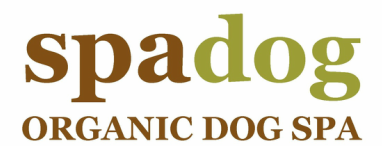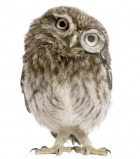
In our last post, we discussed food as being a potential irritant in a dog with itchy skin. But our environment can also play havoc with our health, and lead to an imbalance in the body, in turn leading to skin issues such as itchiness and scratching. It’s not normal for your dog to scratch herself any more frequently than you would scratch yourself. All animals itch and scratch, but use yourself as a guide. After all, you’re an animal too.
Take a good look around your house. Even though our dogs live in the very same home we do, they exist within them differently. For example, when we walk on the kitchen floor we may have on socks, slippers, or bare feet. We wash our feet in the shower, and wash our socks in the laundry. Our dogs, on the other hand, walk on the floor, lay on the floor, and then lick their bodies and feet. This means, what your put on your floors affects your dogs health in a much more profound way. So, what do you put on your floors? If you're using a common floor cleaner from the supermarket, it leaves a residue, especially if you wax afterward. Do you wipe it between washes with a Swiffer disposable wipe? Toxic residue. What's your floor itself made out of? Vinyl flooring contains PVC which releases toxins. Make the switch to healthier cleaning products, and your dog will thank you. There are many companies that now fill this demand, or you can make your own household cleaners.
How about your carpet? Do you sprinkle carpet freshener on it? What about deodorizing sprays such as Febreeze? Do you use a steam carpet cleaner which sprays synthetic detergents and leaves chemical residue? Is it made from wool, which is naturally flame retardant, or is it synthetic? Synthetic carpets contain a vast array of toxins.
Aerosol sprays are another no-no – air fresheners, bug spray, hair spray, etc. (although you’re spraying the air, the mist particles still land on the floor). Your dog rubs against all these toxins on a daily basis, and then ingests them when she licks herself. To make matters worse, an itchy dog spends considerably more time chewing and licking her coat and skin. Start by eliminating the chemicals you use regularly.
Next, consider where your dog sleeps. Did you buy her a new bed around the same time she became itchy? Did you change the laundry detergent you wash her bedding with? Switch to a hypoallergenic one, or one of the healthier brands such as Seventh Generation. Do you use disposable dryer sheets? These leave a toxic coating on fabric. Try using dryer balls, or re-usable fabric dryer sheets. Psst… they’re also better for the environment, and your pocketbook.)
And finally, one last note. It may not be any one of these things I've mentioned that is causing your dogs discomfort, but a combination of any or all of them that bombard your dogs immune system with toxins, eventually showing up as skin issues. There are many reasons your dog may be itchy, and I haven't covered all of them. But remember to think of her body as a whole, and the skin may be indicating something wrong with the system. Perhaps this is your opportunity to create a healthier home for your whole family, and you can all enjoy many, many happy hugs.
Take a good look around your house. Even though our dogs live in the very same home we do, they exist within them differently. For example, when we walk on the kitchen floor we may have on socks, slippers, or bare feet. We wash our feet in the shower, and wash our socks in the laundry. Our dogs, on the other hand, walk on the floor, lay on the floor, and then lick their bodies and feet. This means, what your put on your floors affects your dogs health in a much more profound way. So, what do you put on your floors? If you're using a common floor cleaner from the supermarket, it leaves a residue, especially if you wax afterward. Do you wipe it between washes with a Swiffer disposable wipe? Toxic residue. What's your floor itself made out of? Vinyl flooring contains PVC which releases toxins. Make the switch to healthier cleaning products, and your dog will thank you. There are many companies that now fill this demand, or you can make your own household cleaners.
How about your carpet? Do you sprinkle carpet freshener on it? What about deodorizing sprays such as Febreeze? Do you use a steam carpet cleaner which sprays synthetic detergents and leaves chemical residue? Is it made from wool, which is naturally flame retardant, or is it synthetic? Synthetic carpets contain a vast array of toxins.
Aerosol sprays are another no-no – air fresheners, bug spray, hair spray, etc. (although you’re spraying the air, the mist particles still land on the floor). Your dog rubs against all these toxins on a daily basis, and then ingests them when she licks herself. To make matters worse, an itchy dog spends considerably more time chewing and licking her coat and skin. Start by eliminating the chemicals you use regularly.
Next, consider where your dog sleeps. Did you buy her a new bed around the same time she became itchy? Did you change the laundry detergent you wash her bedding with? Switch to a hypoallergenic one, or one of the healthier brands such as Seventh Generation. Do you use disposable dryer sheets? These leave a toxic coating on fabric. Try using dryer balls, or re-usable fabric dryer sheets. Psst… they’re also better for the environment, and your pocketbook.)
And finally, one last note. It may not be any one of these things I've mentioned that is causing your dogs discomfort, but a combination of any or all of them that bombard your dogs immune system with toxins, eventually showing up as skin issues. There are many reasons your dog may be itchy, and I haven't covered all of them. But remember to think of her body as a whole, and the skin may be indicating something wrong with the system. Perhaps this is your opportunity to create a healthier home for your whole family, and you can all enjoy many, many happy hugs.




